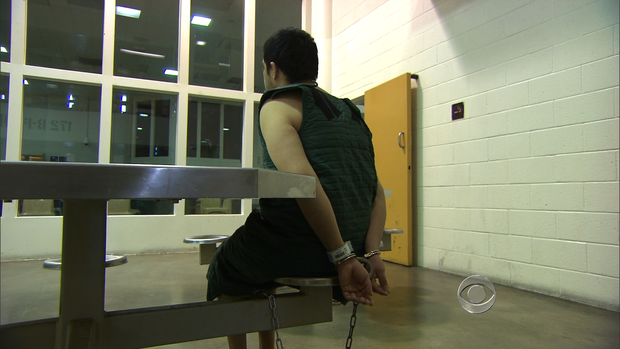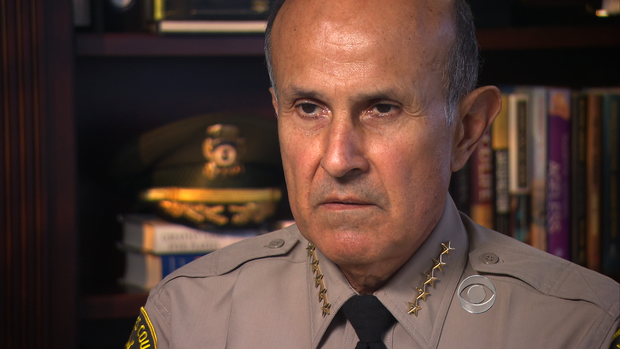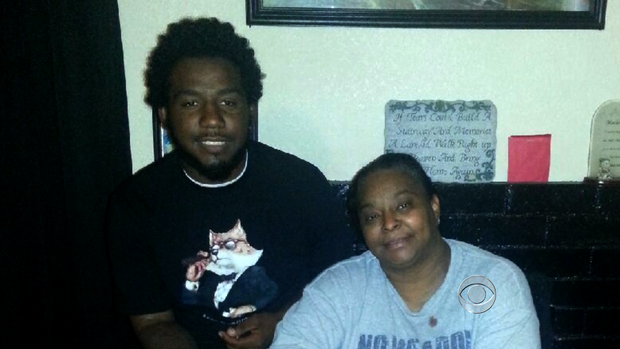Patients as prisoners, jails new mental health institutions
Congress today heard from parents of mentally-ill children, describing long waits for mental healthcare and a shortage of psychiatrists.
The problems have become urgent in the wake of mass killings including those at Newtown, Connecticut and Aurora, Colorado.
With a shortage of mental facilities, jails have become the new asylums.
At Chicago's biggest jail, a mentally ill inmate does a front flip on her bed, refusing medication.
Correctional and medical staff moves in as the inmate struggles and they put their hands on her back, trying to restrain her.
Cook County Sheriff Tom Dart says it's just another day at his jail.
''This is something that happens all the time here and the heart of it is, we're not a mental health facility. These people should not be here,'' said Dart.
Another inmate bursts out of his cell and somersaults over the balcony, trying to break out of a secure area. While another man attempts to break his bed.
"These people by and large are not criminals. They're people with mental illness but when they act out they end up in the jails because it's the only place that'll take them,'' said Dart.
CBS News has obtained records from police departments across the country, many in states that have made budget cuts to mental health care.
U.S. prison woes for mentally ill
Mentally ill and behind bars
Nevada proposes 24-hour mental health center
Police logs in twelve cities revealed that mental health crisis calls have increased an average of 37.5 percent over the last four years.
Los Angeles County Sheriff Lee Baca says more mentally-ill people end up in jail when they're not getting the medications they need.
So why the increase suddenly?
''I believe it is, I think that medication is the stabilizer for most mentally-ill people,'' said Baca. ''The money for that dried up with our California economy going south and when they go off their meds, they go back to the behavior that leads to a law enforcement solution. ''
Kathryn Wooten of Los Angeles called 911 for help when her 23-year-old son Terrence suffered a mental breakdown in October 2011.
''The police came and I thought they were going to take him to the hospital but he wind up in county jail,'' said Wooten.
Police say with few mental health beds available at state facilities, they have no choice but to leave the fate of people like Terrence Wooten to the criminal justice system.
''They have a mental ward in county but he wasn't really getting the counseling and the therapy that he needed,'' said Wooten.
''I'm not a psychiatrist, but the jail has become a hospital, in a de facto way, for the mentally ill. They do commit serious crimes, we don't deny that. What is the remedy, is it purely a criminal justice remedy? I don't think so,'' said Baca.
The Department of Justice says up to 64 percent of inmates at local jails have some mental health problems.
Using that statistic, the two largest jails in the United States, Cook County and LA County would become two of the largest mental institutions in the country - de facto.


